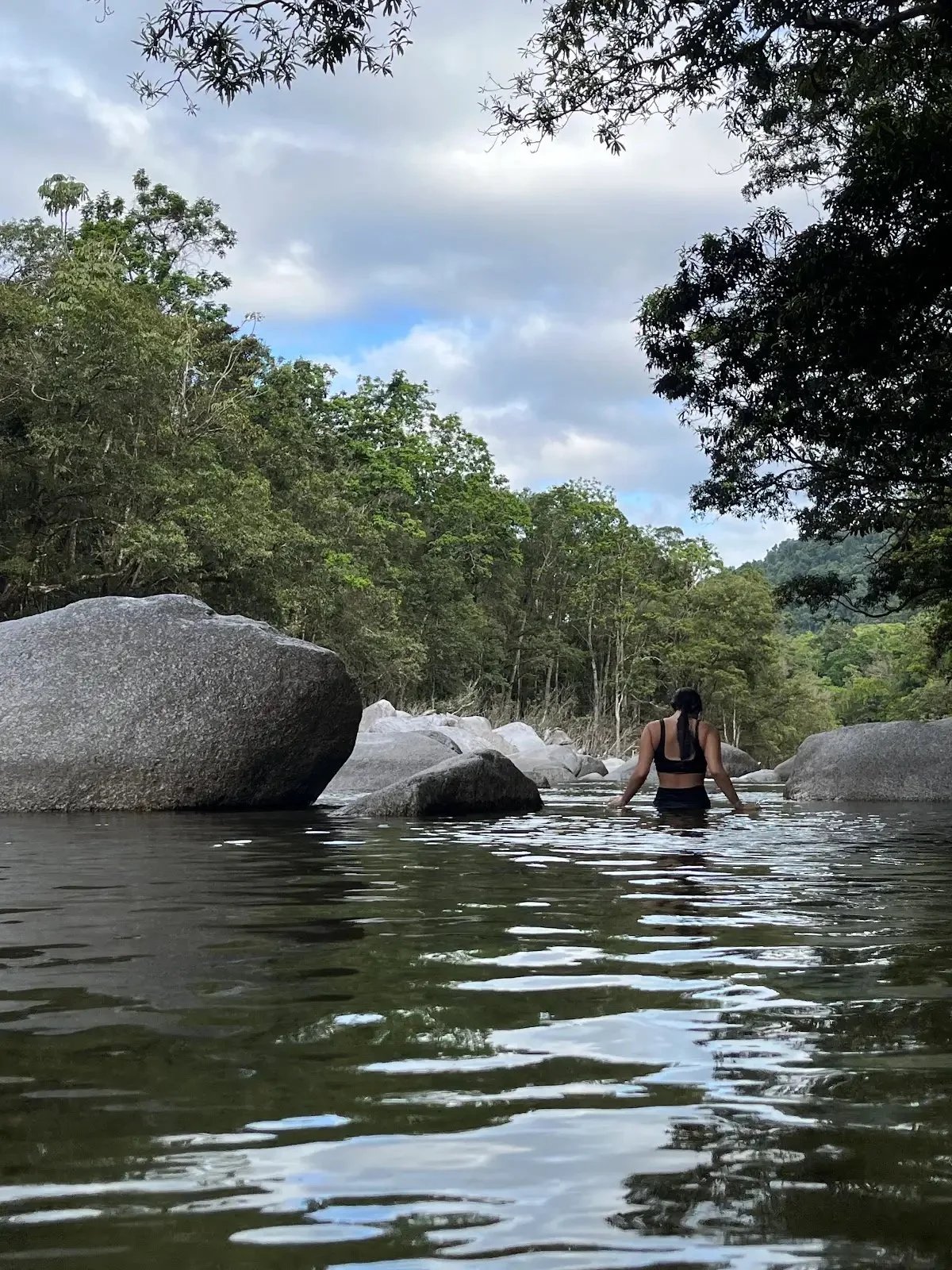• Lauren Ryan in Sydney, Australia - “It’s a social and ethical justice issue”
by
Lauren Ryan
As a sustainability major and environmental advocate, I often meet people eager to debate the validity of my beliefs. I choose to remain hopeful and optimistic that humans can improve how we operate in this world, but many seem to think I need a "reality check”.
Let me start by clarifying: I'm not a "crazy tree hugger" or a “hippie”. I'm a city girl at heart. My friends tease me because I’ve never been camping or skiing, I don't like fishing or swimming in the ocean, and for being skittish about mud and bugs. So, no, I’m not the stereotypical environmentalist. But my love for nature isn't defined by how often I go hiking; it's rooted in my belief that we all have a responsibility to care for the earth.
Whilst interning in Australia at the moment I’ve had lots of chances to discuss Earth’s environment.
I don't expect everyone to agree with me or drastically change their habits overnight. I know that's not realistic. But I do want to live in a way that I can be proud of, that allows me to sleep at night knowing I've done my part. When I die, I want to know that I did my best to leave this planet better than I found it.
A lot of people I’ve met operate under the belief that humans are the rulers of the world, the most intelligent species, and therefore entitled to extract everything the earth has to offer.
This way of seeing themselves is known as “anthropocentrism”, the belief that humans are the most important entities in the universe, and we humans exist primarily to serve our needs and desires.
• Here I am in the Blue Mountains, about 2 hours west and inland by train out of Sydney
To me, this view is not only short-sighted but also egotistical, as it overlooks the fact that humans were neither the first species on this planet nor will we be the last. Just as the dinosaurs were wiped out, humanity may one day face the same fate. When that day comes, the world will continue without us, just as it has before. Yet we act as if we’re invincible—abusing the earth with the belief that we can outsmart the consequences of our actions. Ironically, this very mindset—lacking humility and respect—could lead to our downfall.
I find it troubling that some people dismiss environmental concerns because the worst consequences won’t occur in their lifetime. Exploiting natural resources without considering the ecological impact or the needs of other species is not just irresponsible; it’s a betrayal of future generations who will have to live with the consequences of our actions. This kind of thinking is selfish and harmful—not only to the planet but also to our children, grandchildren, and future generations who will have to live with the damage we leave behind.
I find it increasingly difficult to engage in debates with those who are profit driven and solely focused on the short-term. Unless you have a holistic understanding of ecosystems and the interconnectedness of all life, it’s ignorant to dismiss sustainability as “unrealistic”. What’s more frustrating is that these individuals often present their arguments from a position of superiority, as if the economy should trump environmental stewardship.
• I do get out into the Sydney ‘bush’ while I’m here
To me, it’s not ethical to prioritize profits and lifestyles over the lives of others—or any life, for that matter. So, I don’t care if a multi-million-dollar company’s profit margins shrink a little if they switch to solar power. Just do the right thing. What I truly care about is the little boy in Thailand who is now an orphan because his family was swept away by a tsunami—an event made more likely by rising sea levels and extreme weather patterns fueled by climate change. Climate change is not a distant threat; it’s a reality that is making natural disasters more frequent and intense, wreaking havoc on vulnerable communities.
I care about indigenous and islander communities, whose main source of food is fishing, who are now starving because their waters have been overexploited and over polluted by greedy nations. Overfishing not only depletes fish populations, but the warming oceans and shifting marine ecosystems—driven by climate change—are making things worse. Ocean acidification, another consequence of increased carbon emissions, weakens the shells of shellfish and threatens entire marine food webs. As ocean temperatures rise and waters become more acidic, fish species are migrating to cooler regions, leaving traditional fishing areas barren. These changes not only reduce fish populations but also endanger the very ecosystems that these communities rely on for sustenance. The exploitation of natural resources, combined with the impacts of climate change, doesn’t just affect marine life; it threatens the survival of entire communities and the rich cultural heritage they embody. Their way of life, passed down through generations, is at risk of disappearing because of environmental degradation driven by short-sighted economic gain.
I also care about the innocent animals and fruit trees being burned alive to make way for factories that produce cheap, processed foods. Deforestation to clear land for industrial agriculture directly contributes to climate change by releasing vast amounts of stored carbon dioxide into the atmosphere. At the same time, these factories are producing food filled with chemicals and high-fructose corn syrup—products that harm human health and contribute to the global obesity crisis. Climate change, deforestation, and the exploitation of natural resources are all intertwined, and their combined impact is accelerating the destruction of ecosystems, undermining food security, and worsening public health.
These are the real consequences of putting profit above all else, and it’s our responsibility to act before the damage becomes irreversible. When we destroy nature in the name of economic growth, we’re not only damaging the planet but also destabilizing the systems that sustain all life, including our own.
I’m not interested in sustainability because I’m a "liberal snowflake" - as I’ve been called when talking about Earth. I’m in it because it’s the right thing to do ethically and morally. It disappoints me that sustainability has become such a politically divisive topic when it could be a strong uniting force. Regardless of anyone's age, gender, religious beliefs, political beliefs, or ethnic background, we all need clean air to breathe, fresh water to drink, healthy food to eat, and a safe place to live. We are all in this together.
• And I got up in Earth’s air in New Zealand - thank you, Earth
So when we talk about environmental issues and engage in environmental debates, I ask you to talk to me - and anyone - with empathy and humility. May I ask you to recognize the bigger picture and our shared humanity. Most importantly, let’s just do the right thing. These are not just statistics; these are real lives that are affected by the choices we make. It’s time to recognize that our actions today have far-reaching impacts, and we must choose compassion and responsibility over convenience and greed.
Love,
Lauren Ryan, Intern in Australia, October 2024





